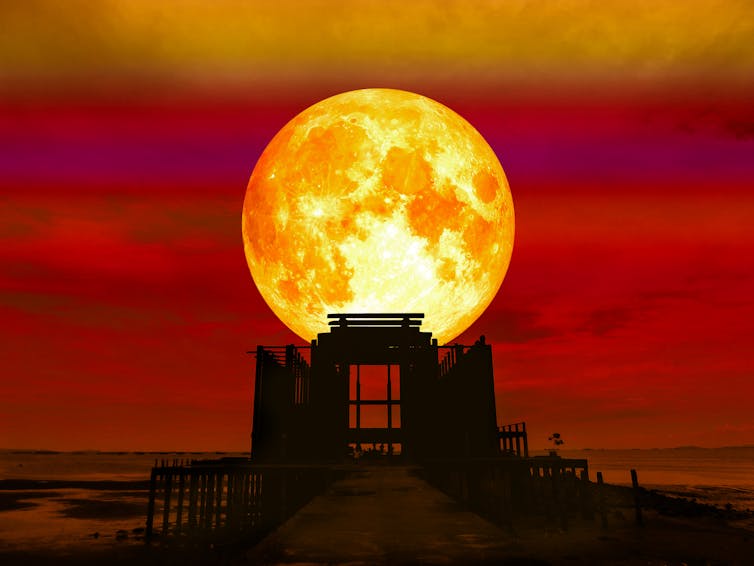
The phenomena that is called a “blood moon” occurs during a lunar eclipse, when the Earth blocks the path of sunlight heading towards the moon. This causes the Earth to cast its shadow over the moon. However, the reddish tint that appears during a blood moon occurs because of refracted sunlight by Earth’s atmosphere.
Throughout history, the blood moon has held significance in a number of cultures and religions around the world. For example, in ancient Mesopotamia, a blood moon was interpreted as an omen of an attack on the king (The Conversation). Because the ancient Mesopotamians were able to predict lunar eclipses with decent accuracy, they would hide their king in an effort to protect him during the duration of the eclipse and put in place an interim ruler. Additionally, early Christians commonly associated blood moons and lunar eclipses with the wrath of God and the crucifixion of Jesus (The Conversation).
However, not all ancient cultures had inherently evil interpretations of the blood moon. The Batammaliba people in Togo and Benin, Africa viewed a blood moon as a symbol of conflict between the Sun and the Moon, a conflict they must help resolve. To do so, they seek to make peace with enemies and end old feuds (The Conversation).
Overall, the blood moon has held importance in a variety of cultures and religions around the world. The existence of this astronomical phenomena and its interpretations have undoubtedly impacted the lives of many people throughout history, and perhaps it will continue to do so.
Leave a comment